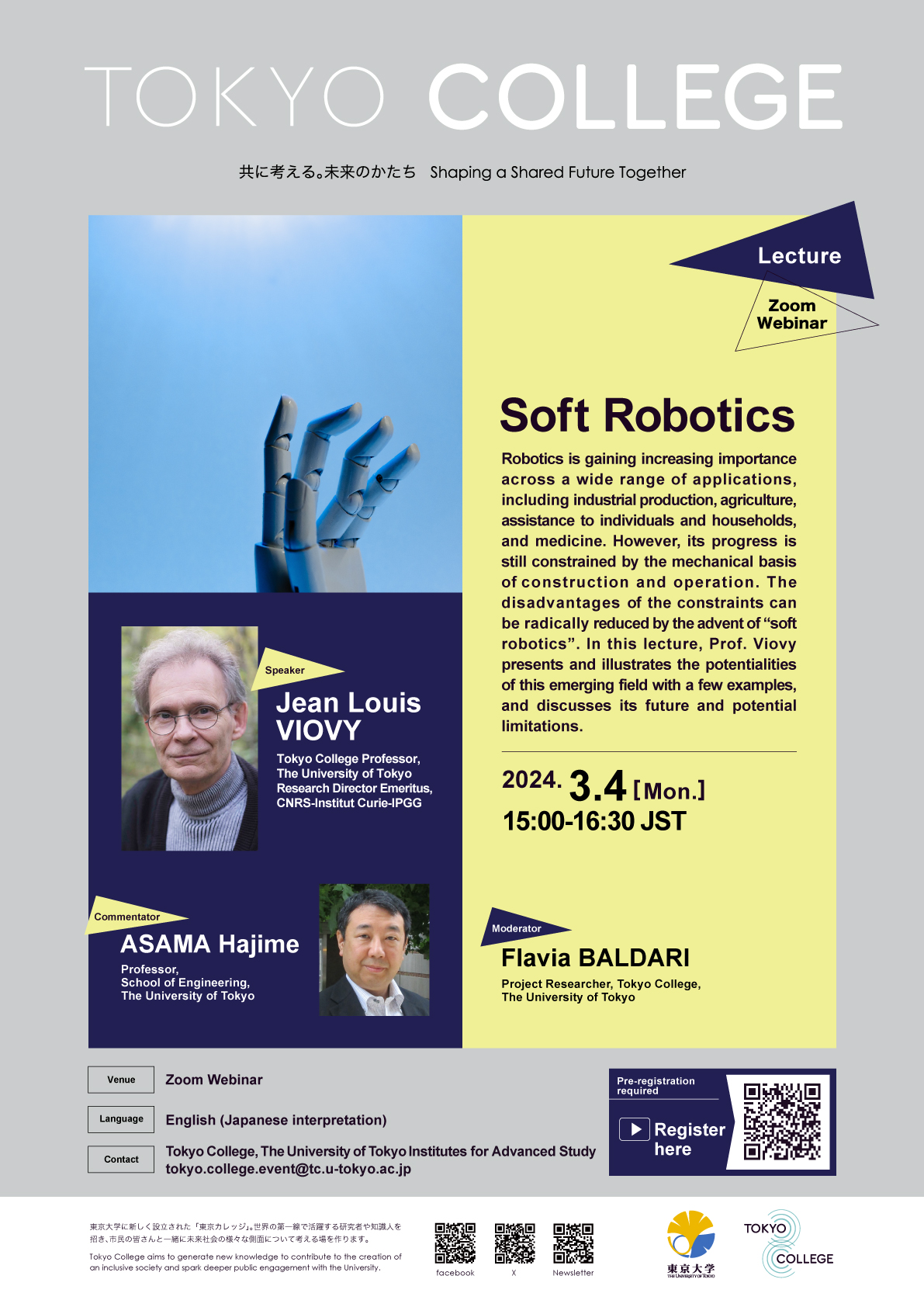Soft Robotics (Lecture by Prof. Jean Louis VIOVY)

| Date(s) | Monday, 4 March 2024, 15:00-16:30 JST |
|---|---|
| Venue |
Zoom Webinar (Register here) |
| Registration | Pre-registration required |
| Language | English (Japanese interpretation) |
| Abstract |
Robotics is gaining increasing importance across a wide range of applications, including industrial production, agriculture, assistance to individuals and households, and medicine. However, its progress is still constrained by the mechanical basis of construction and operation. As the complexity and versatility of robotics is growing rapidly, it has resulted in high costs for development and production. Additionally, the weight and metallic nature of robots pose hazards in interactions with humans. These disadvantages can be radically reduced by the advent of “soft robotics”. In short, this technology replaces metal and mechanics with “soft” elastomeric materials and fluidics. In this lecture, Prof. Viovy presents and illustrates the potentialities of this emerging field with a few examples, and discusses its future and potential limitations. |
| Program |
Lecture Jean Louis VIOVY (Tokyo College Professor, The University of Tokyo Comment ASAMA Hajime (Professor, School of Engineering, The University of Tokyo) Moderator Flavia BALDARI (Project Researcher, Tokyo College, The University of Tokyo) |
| Speaker Profile |
Professor Jean Louis VIOVY Research Director Emeritus, CNRS-Institut Curie-IPGG Co-founder of the startup “Inorevia” ☆CNRS: Centre national de la recherche scientifique ☆IPGG: Institut Pierre Gilles de Gennes pour la Microfluidique |
| Organized by | Tokyo College, The University of Tokyo |
| Contact | tokyo.college.event@tc.u-tokyo.ac.jp |



















